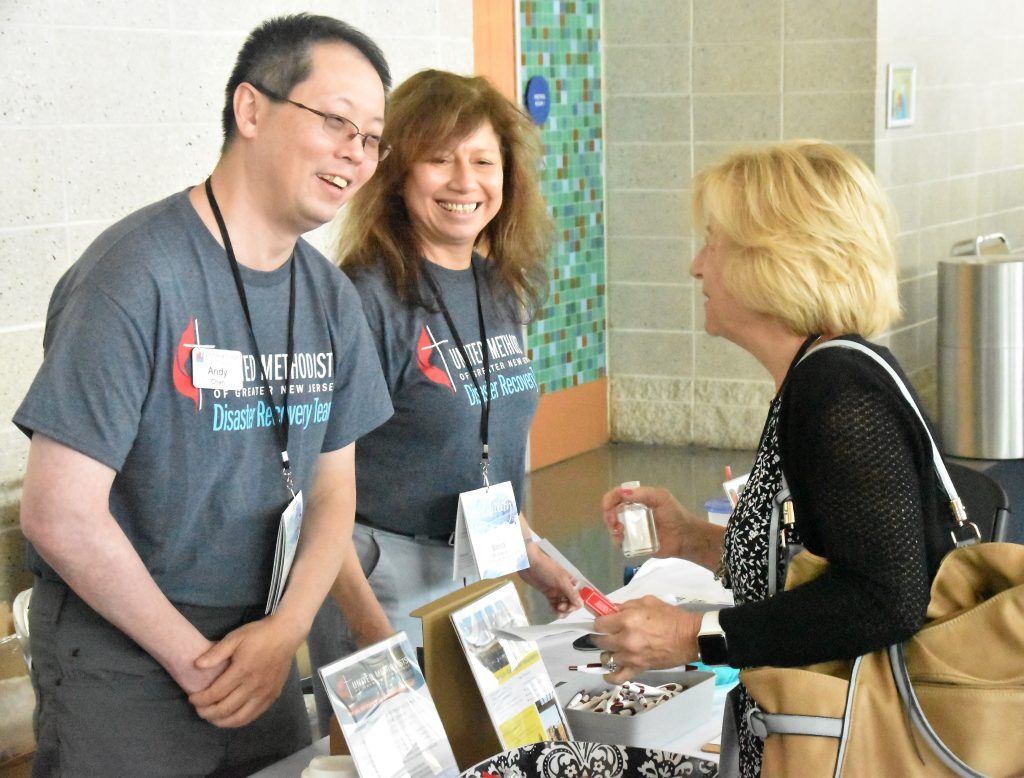Victims of Hurricane Ida are still trying to recover from nature’s wrath from over two years ago.
Helping people come back from such devastation is hard work. But when people’s lives fall apart, there are important individuals behind the scenes helping to piece things back together. Disaster case managers give of themselves to help disaster survivors get the assistance they need; and they should be recognized for the good work they do.
According to Disaster Case Manager Andy Chan, some people had to wait so long for government assistance that they just gave up because they weren’t getting the help they needed. So, they continued living in an unhealthy and potentially dangerous situation. This is why Andy and the other case managers are so eager to help. They never promise a certain time frame because they don’t want clients to lose hope. They let them know the steps so they know what’s coming, and they can gauge where they are in the process so that they keep their faith that things will get better.

Hurricane Ida Recovery staff. Corbin Payne photo
There are a lot of hurdles they encounter when trying to help. The process itself is very tricky and involved and was not really defined when they first started out. They were also coming into people’s lives two years after Ida hit, and after so many random organizations claiming they could help, people were skeptical that what the UMC was offering was legitimate.
Clients have to provide a lot of documentation, including personal bank statements and mortgage statements. And it’s understandable that they would be guarded at first. Disaster case managers have to be tenacious in trying to establish a foundation of trust in order to be able to help.
Additionally, navigating technology can be difficult as well for clients who don’t have computers and for others who have less experience with them. Andy and the other case managers try to help with clients become self-sufficient, teaching them how to navigate the website and upload documents, ultimately enabling them to recover and to adapt to new life skills.
It can also be a challenge to navigate all of the programs that are available, particularly the government programs that have been very slow to roll out. “The good news is that we’ve established ongoing conversations with points of contact both at the Department of Community Affairs (DCA) and the Department of Environmental Protection (DEP),” says Disaster Case Management Supervisor Raul Nombera, who works closely with staff and partner agencies.
Disaster recovery is both challenging and rewarding
Disaster recovery is both challenging and rewarding. The essential partnership between case managers and clients is built on communication, resourcefulness and a tremendous amount of trust and support. Disaster relief could not take place without financial assistance, which is why case managers are grateful for local partners who have aided their boots-on-the-ground efforts.
One of the biggest obstacles, however, is outreach—trying to reach everyone that still needs assistance and getting communities involved. The disaster case management team is doing everything they can to spread the word to other communities about their work, what they have accomplished so far, and how they can still help.
Kia Davies remembers September 1, 2021, like it was yesterday. She describes it in one word: HORRIBLE. She was expecting heavy rain from Hurricane Ida but not to the extent that they were inundated with that day. She lived on the first floor and was stranded in her apartment by the flooding, helplessly watching so many people’s belongings, as well as trash, float down the street. Although the flooding receded in the morning, there was debris everywhere. A few days later, the landlord shut of all the public utilities, and they had to vacate.
She and her two children had nowhere to go, which had an even greater impact on her autistic son, who struggles when his routines are disrupted. Kia went to a homeless shelter with her son, while her daughter stayed with a cousin. The landlord failed to make any repairs until January 2022; and even then, when they returned to the apartment in February, they still could not live there. Most people were evicted or left. Kia finally moved into a new apartment in October 2022.
When Andy Chan contacted her, Kia had already handled the apartment and rent situation on her own; but she still needed furniture and household items, as hers were destroyed in the flood. Andy helped Kia acquire a living room set, a kitchen set and a bedroom set, all paid for by the Salvation Army.
Kia recalled Andy being courteous, constantly checking in on her with calls, texts, and emails. When he came out to her home with a gift basket, she was so surprised and touched that he was still looking out for her. Case managers have to be persistent, says Andy. They could have up to 100 text messages with a client, as they work with them to meet important needs. But they also have to check in to see how the clients are coping. “He was there for me,” Kia says. “He listened to my problems and helped me out.”
Homeowner Janie Essex also remembers the horror when she saw how much water was coming into her home, pouring in from the side door, coming down the stairs, eating away at the sheet rock. She and her fiancé were running back and forth, trying to save their home office in the basement with all their electronics, fearing the low outlets that were exposed and covered with water. They also had to save their cat, who was fearfully hiding out on a high shelf in the basement and needed to be rescued.
Janie remembers being frustrated afterward. “I was stuck, and no one could help.” She went to the town, and they were of no help. She then applied for FEMA aid, and the agency sent her money to replace the water heater and boiler but little else.
‘He ended up being one of my biggest blessings’
Janie met Andy a year later. “He came out of nowhere and said they have resources to help me fix the basement.” After receiving funds from Compass 82 and Salvation Army, Janie is another success story. She happily reports that there is nothing else to fix. She’s been able to take preventive measures, and her home is fully recovered. She is even planning a wedding for this March.
Janie shared a similar sentiment about Andy, saying, “He ended up being one of my biggest blessings.”
 The relationship between survivors and case managers is special. They develop long-term connections. Some clients call each week, sometimes unrelated to their hurricane recovery issues. “Once they realize you are in it for them and they’re not just a number, it makes a very big difference,” Andy says. “We are the light in the dark for them.”
The relationship between survivors and case managers is special. They develop long-term connections. Some clients call each week, sometimes unrelated to their hurricane recovery issues. “Once they realize you are in it for them and they’re not just a number, it makes a very big difference,” Andy says. “We are the light in the dark for them.”
When asked why they do this work, for each case manager the answer was simple—to help others. They all found the greatest reward in taking on this role.
“When I started this, intellectually I knew I would learn about survivors and how they’d be helped, but I didn’t know how rewarding it would be for me,” Andy shared. “I go to bed every night knowing I did my best for these folks, and no amount of money can pay for that. It’s truly been a special experience for me.”

